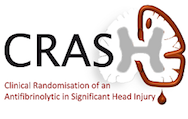Traumatic brain injury is the leading cause of death and disability in young adults around the world and leads to nearly half of all trauma deaths. As the leading cause of head injury around the world, Road Traffic Crashes (RTC) account for 40–50% of all cases hospitalized for TBI. Data from the WHO Global Burden of Disease study in 2002 shows that, of those injured severely enough to require attention from a health facility, almost one quarter had a traumatic brain injury. Road crashes are a significant contributor to the injury burden and the Global Status Report on Road Safety estimates that approximately 10,500 persons die each year on the roads of Afghanistan. Head injury is the most important cause of death from road crashes and indeed up to 60% of Traumatic Brain Injury is due to road traffic incidents.
Currently there is scarce information on the prevalence of TBI across Afghanistan, mainly due to the ongoing conflict. Local data collected at University Teaching Hospital, Nangarhar indicates that over a 2-month period in 2013 approximately 500 trauma cases were seen, of which 220 patients had TBI. Further breakdown of these patients shows that 90 were involved in a road traffic incidents, 55 had falls and the remaining were victims of fighting, abuse and sports. The overall mortality due to TBI was 5%. However, it is anticipated that the risk of death in patients with moderate to severe TBI would be significantly higher.

